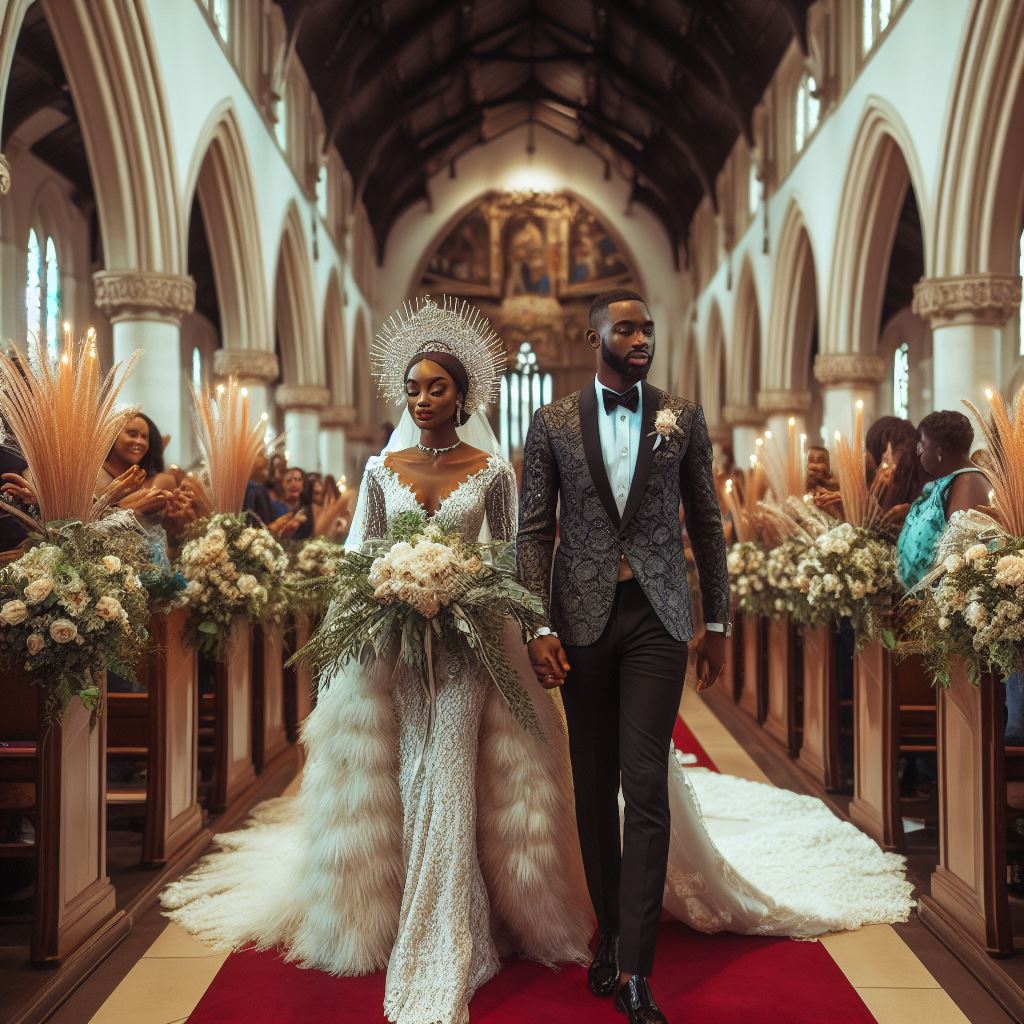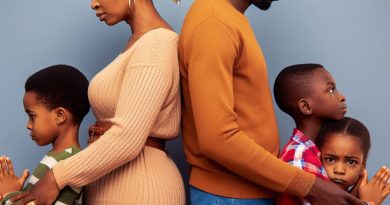Intertribal Unions: How Marriage Definitions Intersect in Nigeria
Last Updated on October 13, 2023
Introduction
Intertribal unions refer to marriages between individuals from different ethnic backgrounds within Nigeria.
Examining marriage definitions in Nigeria is crucial in understanding the dynamics and complexities of intertribal unions.
By exploring the significance of marriage definitions, we gain insight into the social, cultural, and legal implications of these unions in Nigeria.
Intertribal unions are characterized by the coming together of individuals from diverse ethnic groups.
These unions challenge the traditional notions of marriage in Nigeria and promote cultural diversity.
Understanding the various marriage definitions prevalent in Nigeria helps to navigate the complexities of intertribal unions.
Examining marriage definitions in Nigeria also sheds light on the legal aspects of intertribal unions.
Different tribes in Nigeria have unique customs and traditions that shape the definition and practice of marriage.
This exploration helps to identify the legal rights, obligations, and implications associated with intertribal unions.
Importance of examining marriage definitions in Nigeria
It allows us to appreciate the rich cultural heritage and diversity within the country.
Furthermore, it enables us to promote inclusivity and tolerance in intertribal unions, fostering unity among Nigerians.
Basically, intertribal unions in Nigeria are an essential aspect of the country’s social fabric.
Understanding marriage definitions is vital in unlocking the complexities and promoting harmony in these unions.
By appreciating the significance of examining marriage definitions, we can enhance cultural integration and cohesion within Nigeria’s diverse society.
Historical Context of Intertribal Unions
Traditional views on intertribal marriages
- In traditional Nigerian society, intertribal marriages were often discouraged or even forbidden.
- Tribes believed that marrying outside their community would lead to the dilution of their culture and traditions.
- Preference was given to endogamous marriages, where individuals would marry within their own tribe.
Historical factors influencing intertribal unions
- Migration: As tribes migrated and settled in new areas, they came into contact with other tribes, leading to intertribal interactions.
- Trade: The trading activities between tribes created opportunities for people from different tribes to meet and form relationships.
- Warfare: Interactions during warfare often resulted in intertribal marriages as a means of establishing peace and alliances.
Influence of colonialism on intertribal unions
- Colonial policies: The British colonization of Nigeria brought about changes in marriage laws and policies, as well as social norms.
- Western influence: With the introduction of Western education and Christianity, intertribal marriages became more acceptable.
- Decline of traditional values: Colonial rule eroded some of the traditional beliefs surrounding marriage, making intertribal unions more common.
Challenges faced by Intertribal Unions
Despite the historical context, intertribal unions in Nigeria have faced various challenges:
- Discrimination: Some communities still view intertribal marriages with suspicion and treat individuals in such unions as outsiders.
- Language and cultural barriers: Intertribal couples often face difficulties in communication and adapting to each other’s cultural practices.
- Family opposition: Traditional families may oppose intertribal marriages due to concerns about the preservation of their tribe’s heritage.
Significant Benefits of Intertribal Unions
However, intertribal unions also have significant benefits:
- Cultural exchange: By marrying someone from a different tribe, individuals can learn about and appreciate diverse cultural traditions.
- Social cohesion: Intertribal marriages can help bridge divides among different tribes and foster unity within Nigerian society.
- Spread of tolerance: Intertribal marriages contribute to a more tolerant and inclusive society, promoting acceptance and diversity.
Promotion of Intertribal Union by Government Initiatives
Government initiatives have also aimed to promote intertribal unions:
- Legal protection: Laws have been enacted to protect individuals in intertribal marriages from discrimination and ensure their rights.
- Public awareness campaigns: Efforts have been made to raise awareness about the benefits of intertribal marriages and challenge prejudices.
- Counseling and support services: Organizations offer counseling and support to intertribal couples to help them navigate challenges and strengthen their relationships.
Generally, the historical context of intertribal unions in Nigeria reveals the changing attitudes towards marriage.
While traditional views initially discouraged such marriages, influences such as migration and colonialism have led to increased acceptance.
Despite challenges, intertribal unions contribute to cultural exchange, social cohesion, and a more tolerant society.
Government initiatives play a vital role in ensuring the protection and support of intertribal couples.
Read: Marriage Expectations: From Singlehood to Matrimony in Nigeria
Intertribal Marriages in Modern Nigeria
Intertribal marriages have become increasingly accepted and prevalent in contemporary Nigerian society.
This shift can be attributed to various factors that contribute to the rise of intertribal unions.
The influence of urbanization and globalization has played a significant role in this phenomenon.
Increasing acceptance and prevalence of intertribal marriages
- Intertribal marriages were once considered taboo and discouraged by traditional customs.
- However, in recent years, societal attitudes towards intertribal unions have become more accepting.
- Increasing education and exposure to diverse cultures have contributed to this change in perception.
- Many Nigerians now prioritize compatibility and love over ethnic background when choosing a life partner.
- This shift in mindset has resulted in a significant increase in intertribal marriages across the country.
Factors contributing to the rise of intertribal unions
- One factor that has fueled the increase in intertribal marriages is economic migration.
- As more Nigerians move to urban areas in search of better job opportunities, they interact with people from different tribes.
- This exposure fosters understanding, acceptance, and ultimately, intertribal relationships.
- The rise of social media and online dating platforms has also played a role in connecting individuals from different tribes.
- These platforms allow people to build relationships based on shared interests and values rather than ethnicity.
Influence of urbanization and globalization on intertribal marriages
- Urbanization has led to increased intertribal marriages as people from various ethnic backgrounds live and work together.
- The diverse and cosmopolitan nature of cities promotes social integration and intercultural relationships.
- Globalization has created a more interconnected world, breaking down barriers and facilitating cultural exchange.
- Nigerians, particularly the younger generation, have embraced this global mindset and are open to marrying outside their tribe.
- Furthermore, intertribal marriages are seen as a way to strengthen unity and promote national cohesion.
Essentially, intertribal marriages are on the rise in modern Nigeria due to increasing acceptance, factors like economic migration and online platforms, and the influence of urbanization and globalization.
These unions serve as a testament to a changing society that values love and compatibility over traditional ethnic boundaries.
Read: The Dynamics of Christian Marriages in Contemporary Nigeria
Challenges and Issues in Intertribal Unions
Intertribal unions in Nigeria face various challenges and issues, stemming from cultural and ethnic differences, discrimination, and social pressure.
These factors often create conflicts and stigmatization for intertribal couples, further exacerbated by disapproval from their families.
1. Cultural and ethnic differences as potential sources of conflict
Intertribal unions bring together individuals from different cultural backgrounds, resulting in potential clashes due to diverse customs, traditions, and practices.
These differences can lead to misunderstandings, disagreements, and even conflicts within the relationship.
2. Discrimination and stigmatization faced by intertribal couples
Intense discrimination and stigmatization are experienced by intertribal couples in Nigeria.
They are often subject to prejudice and negative stereotypes from society, which may make it challenging to gain acceptance, both from individuals and larger communities.
3. Social pressure and family disapproval
Intertribal couples frequently encounter societal pressure and disapproval from their own families.
In many Nigerian cultures, family approval is vital for a relationship to proceed, and intertribal unions often fall victim to familial rejection due to deep-rooted ethnic biases and concerns about maintaining cultural purity.
To tackle these challenges and issues, it is crucial to promote understanding, acceptance, and respect for diverse cultures and ethnicities.
Education plays a vital role in enlightening individuals about the benefits of intertribal unions, dispelling stereotypes, and promoting harmony.
Here are some approaches to address the challenges faced in intertribal unions:
1. Education and awareness programs
Implementing educational programs in schools, communities, and religious institutions can help enhance awareness and understanding of different cultures and ethnicities.
These initiatives can encourage empathy, reduce prejudice, and promote acceptance of intertribal unions.
2. Support networks and counseling services
Establishing support networks and counseling services specifically designed for intertribal couples can provide them with a safe space to share their experiences, seek advice, and navigate the challenges they face.
These support systems offer valuable emotional support and guidance.
3. Advocacy for legal protections
Advocacy efforts should focus on pushing for legal protections to safeguard intertribal couples against discrimination and stigmatization.
Laws should be put in place to ensure equal rights and opportunities for all, regardless of cultural or ethnic background.
4. Promoting cultural exchange and integration
Encouraging cultural exchange programs and initiatives that promote unity and integration can help bridge the gaps between different tribes and promote better understanding and acceptance.
This can be done through festivals, cultural events, and community gatherings that celebrate diversity.
In general, intertribal unions in Nigeria face numerous challenges and issues due to cultural and ethnic differences, discrimination, and social pressure.
To address these challenges, it is essential to promote education and awareness, establish support networks, advocate for legal protections, and foster cultural exchange.
Through these efforts, a more inclusive and accepting society can be created, allowing intertribal couples to thrive and live without fear of judgment or stigmatization.
Read: The Evolution of Marriage Definitions in Nigerian Cultures

Legal and Legislative Perspectives on Intertribal Marriages
Intertribal unions in Nigeria have long been a subject of legal and legislative discussions.
The legal status and recognition of such unions, as well as the role of marriage legislations in defining intertribal marriages, have been crucial aspects to consider.
Furthermore, there have been concerted efforts to promote inclusivity and protect the rights of intertribal couples in Nigeria.
Legal status and recognition of intertribal unions in Nigeria
- Intertribal unions are recognized under Nigerian law, allowing individuals from different tribes to marry.
- The Marriage Act of 1914, applicable in all states, permits intertribal marriages, ensuring legal validity.
- However, customary laws and traditions often influence the recognition and acceptance of intertribal unions.
- Intertribal couples may face challenges regarding inheritance rights, property ownership, and child custody.
- Recognition of intertribal marriages has improved over time, with courts increasingly protecting the rights of couples.
Role of Marriage legislations in defining intertribal marriages
- Marriage legislations play a vital role in defining and regulating intertribal unions in Nigeria.
- The Marriage Act recognizes marriages conducted in accordance with various customs and traditions.
- It provides a legal framework for the solemnization, registration, and dissolution of intertribal marriages.
- Lawyers and legal experts have emphasized the need to update marriage legislations to reflect modern realities.
- Efforts are underway to amend existing laws to address evolving societal norms and protect intertribal couples.
Efforts to promote inclusivity and protect the rights of intertribal couples
- The Nigerian government and civil society organizations have prioritized inclusivity and the protection of intertribal couples’ rights.
- Various advocacy groups work towards eliminating discrimination and supporting intertribal unions.
- Campaigns aimed at raising awareness about the legal rights and protections available to intertribal couples have been conducted.
- The judiciary has played a significant role in safeguarding the rights of intertribal couples through landmark judgments.
- Efforts are ongoing to strengthen legal protections, ensure equal treatment, and enhance societal acceptance of intertribal marriages.
In essence, the legal and legislative perspectives on intertribal marriages in Nigeria reveal both progress and challenges.
While intertribal unions are recognized under Nigerian law, customary laws and traditions continue to influence their acceptance.
Marriage legislations provide a framework for defining and regulating these unions, but there is a need for updates to reflect societal changes.
Efforts to promote inclusivity and protect the rights of intertribal couples are crucial to ensure equal treatment and societal acceptance.
The ongoing work in this area highlights the importance of ensuring legal protections for all individuals regardless of their tribal affiliations.
Read: Marriage Rites and Celebrations in Major Nigerian Tribes
Impact and Significance of Intertribal Unions
Intertribal Unions in Nigeria hold immense significance, actively promoting unity and cultural exchange within the nation.
- Unity and Cultural Exchange: These unions dissolve ethnic boundaries, enhancing intercultural understanding.
- Fostering National Integration: They play a pivotal role in knitting the diverse ethnic fabric of Nigeria together.
- Social Cohesion: Marriages across tribes foster harmony, reducing tribal tensions and conflicts.
- Positive Contributions to Society: Intertribal marriages yield numerous benefits for Nigerian society.
- Enhanced Tolerance: Couples from different tribes teach tolerance and empathy to their families and communities.
- Rich Cultural Heritage: Children of such unions inherit a rich tapestry of traditions, languages, and values.
- Economic Growth: Intertribal unions foster cross-tribal economic partnerships, fueling local development.
- Cultural Preservation: Through these unions, traditions and languages that might have faded are preserved and revitalized.
- Political Unity: They encourage diverse representation in politics, forging a stronger, more inclusive nation.
- Peace and Stability: Reduced tribal divisions lead to a more stable and peaceful society.
In short, intertribal unions in Nigeria are powerful instruments of unity, offering hope for a future where tribal diversity is a source of strength, not division.
They pave the way for a Nigeria that is more integrated, tolerant, and harmonious, reaping substantial benefits for its society and people.
Conclusion
In summary, intertribal unions in Nigeria break down barriers.
They promote unity and understanding among diverse cultures.
The importance of recognizing and respecting these unions cannot be overstated. They challenge stereotypes and foster tolerance.
Our exploration has revealed the richness of these unions, where Igbo and Yoruba, Hausa and Ibibio, and many others intertwine their destinies in love and respect.
These unions have thrived throughout history, proving that love knows no boundaries.
As we wrap up, let’s emphasize the significance of acknowledging these diverse marriage definitions.
They redefine traditions and pave the way for cultural evolution, showing that Nigeria’s strength lies in its unity.
With hope, we look forward to a future where intertribal unions are not only accepted but celebrated.
They are bridges that span the cultural divides that have often separated us.
Nigeria’s beauty shines brightest when all its tribes come together.
Let us continue to champion these unions, as they embody the very essence of our nation – diversity, unity, and love.


